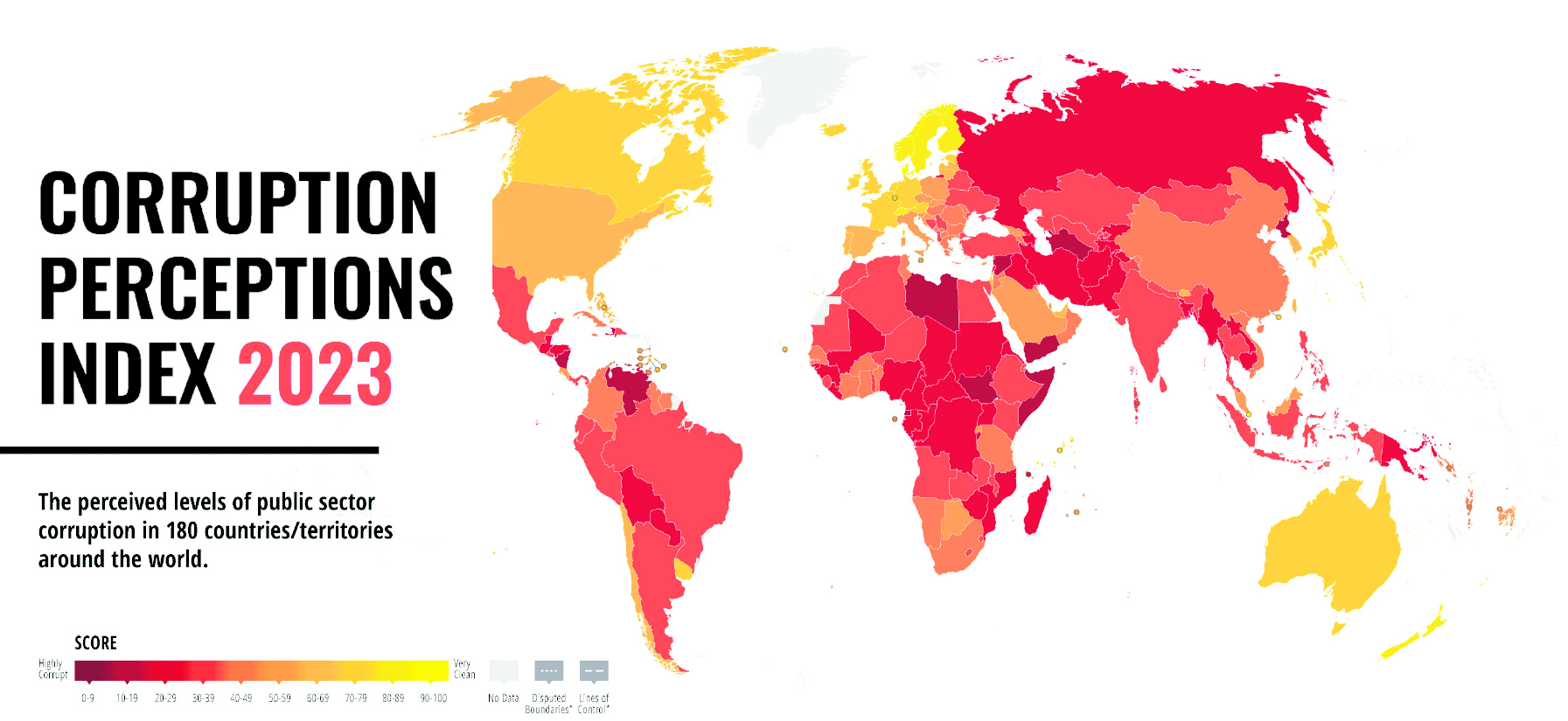
The recently unveiled 2023 Corruption Perceptions Index (CPI) by Transparency International highlights a persistent challenge, indicating minimal progress in addressing public sector corruption across the majority of nations.
This global index evaluates 180 countries and territories, assessing their perceived levels of public sector corruption on a scale of 0 (highly corrupt) to 100 (very clean).
In this latest report, India secured the 93rd position out of 180 countries, with an unaltered overall score of 39. This marks a slight decline compared to its 2022 ranking of 85, where the overall score was marginally higher at 40.
“India (39) shows score fluctuations small enough that no firm conclusions can be drawn on any significant change. However, ahead of the elections, India sees further narrowing of civic space, including through the passage of a (telecommunication) bill that could be a ‘grave threat’ to fundamental rights,” the report said.
In South Asia, both Pakistan (133) and Sri Lanka (115) grapple with their respective debt burdens and ensuing political instability, it said.
“However, the two countries have strong judicial oversight, which is helping to keep the government in check. The Supreme Court of Pakistan strengthened citizens’ right to information by expanding this right under Article 19A of its Constitution to previously restricted institutions,” it said.
The report said as Bangladesh (149) emerges from the least developed country (LDC) status, with economic growth supporting a continued reduction in poverty and improving living conditions, the flow of information on the public sector is hindered amidst an ongoing crackdown against the press.
Noting that China (76) has made headlines with its aggressive anti-corruption crackdown by punishing more than 3.7 million public officials for corruption over the last decade, the report said a closer study of the cases with guilty verdicts found that public officials often use corruption as a way to drive up their income.
However, the country’s heavy reliance on punishment rather than institutional checks on power raises doubts over the long-term effectiveness of such anti-corruption measures, the report said.
The report said as the Asia Pacific region faces a big 2024 election year, with people coming out to vote in Bangladesh, India, Indonesia, Pakistan, Solomon Islands, South Korea and Taiwan, the 2023 Corruption Perceptions Index (CPI) reveals another year of little to no meaningful progress towards curbing corruption.
“For five years in a row, the average CPI score for the region stagnates stubbornly at 45 out of a possible 100. Very few countries show sustained turnarounds that indicate significant changes in corruption levels and several historically at the top are slowly declining,” it said.
Seventy-one per cent of the countries across Asia and the Pacific have a CPI score below the regional average score of 45 and the global average of 43 out of 100. These weak scores reflect the lack of delivery by elected officials on anti-corruption agendas, together with crackdowns on organised civil society and attacks on freedoms of press, assembly and association, the report said.
“Countries with continued high scores, such as New Zealand (3) and Singapore (5), maintain their positions at the top of the index globally, followed closely by other countries with stronger corruption control mechanisms, such as Australia (14), Hong Kong (14), Japan (16), Bhutan (26), Taiwan (28) and South Korea (32),” it said.
The bottom of the index includes fragile states with authoritarian regimes, including North Korea (172) and Myanmar (162). Afghanistan (162) continues to face one of the worst humanitarian crises in history.